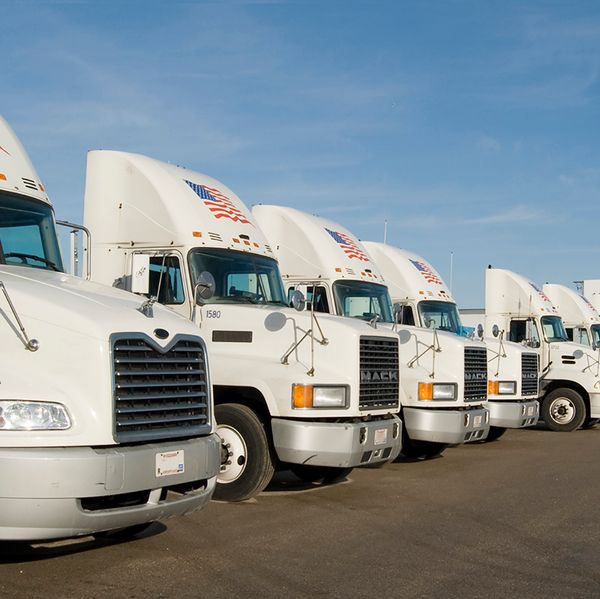Mileage-based user fee study finds a one-size-fits-all method not feasible
Key discoveries — positive and negative — were identified in the results from a Mileage-Based User Fee (MBUF) study by the Eastern Transportation Coalition (formerly the I-95 Corridor Coalition).
The six-month pilot ran from October 2018 through March 2019 with over 50 trucks participating across 27 states. It was the first step in an MBUF solution.
Why conduct the MBUF study?
Currently, fuel taxes are the main source of transportation funding for improving roads and bridges, accounting for nearly $35 billion in tax revenue. But, as vehicle fuel-efficiency standards have improved, and the push for zero emissions vehicles is increasing, fuel taxes are no longer a long-term solution for funding transportation infrastructure.
As a result, Congress established the Surface Transportation System Funding Alternatives (STSFA) program under the Fixing America’s Surface Transportation Act (FAST Act) passed in 2015. An MBUF is one consideration in finding an alternative revenue source.
Under the MBUF, drivers of all vehicles —passenger cars and commercial vehicles — are charged a fee based on miles driven instead of fuel consumed. The Coalition recognized, however, that feasibility testing for an MBUF program for commercial vehicles was needed since commercial vehicles are:
- Superusers of the transportation system, and
- Already complying with the mileage reporting requirements of the International Fuel Tax Agreement (IFTA) and the International Registration Plan (IRP).
IFTA and IRP: A well-established base
Recordkeeping under IFTA and IRP can be cumbersome. However, the programs were established to reduce the burden on carriers by creating a unified system of paying fuel tax and vehicle registration. While not all carriers are required to register under IFTA and IRP, and the Coalition acknowledged that these programs are not a perfect match for the MBUF program, the Coalition determined the overall framework of IFTA and IRP works well. They have set a good base of data and reporting requirements that should not be overlooked when creating a system for the MBUF program.
One rate for all is not doable
Rates for the pilot study were based on each Coalition state’s diesel tax. The Coalition also assumed an average fuel efficiency of 6 miles per gallon (MPG) for all vehicles. As the data came in, however, it was clear that all vehicles could not be treated equally. Vehicle MPG rates varied from 3.42 to 6.33 resulting from factors such as vehicle type, age, and overall performance. If the MBUF rate were set based on a national MPG average, vehicles with higher fuel efficiency standards would be required to pay more; a penalty the Coalition felt was hard to justify.
ELDs would need tweaking
Many carriers use electronic logging devices (ELDs) for hours of service compliance and mileage data tracking for IFTA and IRP. However, some ELDs track location data at an interval of one hour. Tracking location in one-hour increments does meet the minimum requirements for hours of service, but that ping-rate is not sufficient for mileage data under IFTA and IRP. The Coalition concluded that an MBUF program using electronic data tracking would require some ELDs to be reconfigured, or a more robust technology solution would be needed.
More research needed
The MBUF pilot was only the beginning to researching and finding an alternative solution for transportation funding. The Coalition will continue exploring an MBUF program, but at this time the Coalition is neutral on whether an MBUF is the ultimate solution.
A new pilot is being planned and will include 200 commercial vehicles from across the lower 48 states.
Key to remember: A mileage-based user fee (MBUF) program is being explored as a potential source of income for transportation funding.






















































